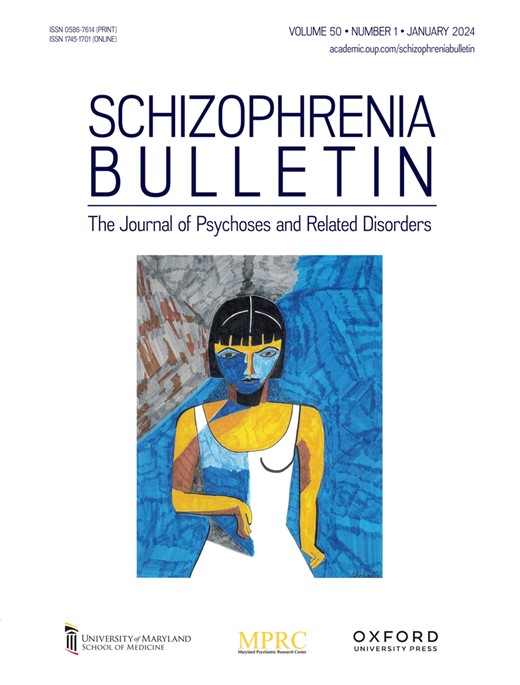43 THE INFLUENCE OF PHYSICAL EXERCISE ON THE MENTAL AND EMOTIONAL REGULATION ABILITY OF COLLEGE STUDENTS
IF 5.3
1区 医学
Q1 PSYCHIATRY
引用次数: 0
Abstract
Background The high-pressure environment of modern society has led to increasingly serious mental health problems among college students, such as anxiety, depression, and mood swings, which have become important factors affecting their academic performance and quality of life. Sport is widely recognized as an economical and easy-to-implement mental health intervention, and studies have shown that sport not only enhances mental toughness by increasing physical fitness, but also regulates psychological states by releasing stress hormones and neurotransmitters that promote positive emotions. However, the mechanisms by which different exercise modes and intensities affect emotional regulation have not been fully clarified. The study aims to investigate the effects of aerobic exercise on college students’ emotion regulation and mental health, and to provide a scientific basis for mental health interventions in colleges and universities. Methods The study was conducted on 200 college students of a university with an age range of 18 to 25 years old, with a balanced gender ratio, who volunteered to participate in the study and had no history of major physical or mental illnesses. The participants were randomized into experimental and control groups, 100 in each group. The experimental group received an eight-week physical activity intervention consisting of three 60-minute sessions of aerobic exercise per week, including running, calisthenics, and basketball, while the control group maintained their study and lifestyle habits and did not participate in any systematic physical activity intervention. Before and after the intervention, the Emotion Regulation Questionnaire (ERQ) and the General Health Questionnaire (GHQ) were used to measure the emotion regulation ability and mental health of the two groups of students. Data were analyzed for intervention effects by paired t-tests, with P<0.05 as the criterion for significance. Results The results of the experiment showed that the physical education and sport intervention had a significant effect on both emotional regulation and mental health of the university students. The ERQ scores of the experimental group increased from 14.3±3.2 before the intervention to 22.7±4.1 after the intervention, while the ERQ scores of the control group only increased from 14.5±3.4 to 15.2±3.5, which was not a significant difference. The results of mental health assessment showed that the GHQ score of the experimental group decreased from 18.5±6.3 to 12.1±5.7, which was significantly better than that of the control group. The experimental group showed a significant decrease in the indicators of psychological stress and negative emotions (P<0.01), demonstrating a stronger ability to regulate emotions. Discussion The results of the study show that physical exercise can significantly enhance the emotion regulation ability and mental health of college students. Regular aerobic exercise helps college students cope with academic pressure and social challenges by regulating nervous system function and promoting positive emotional expression, effectively relieving psychological stress and reducing negative emotional responses. At the same time, group exercise programs also enhance participants’ sense of social support by providing opportunities for social interaction, which further improves their psychological adaptability.背景 现代社会的高压环境导致大学生的心理健康问题日益严重,如焦虑、抑郁、情绪波动等,成为影响大学生学习成绩和生活质量的重要因素。体育运动被公认为是一种经济、易于实施的心理健康干预手段,研究表明,体育运动不仅能通过增强体质来提高心理韧性,还能通过释放应激激素和神经递质来调节心理状态,促进积极情绪的产生。然而,不同运动模式和强度对情绪调节的影响机制尚未完全阐明。本研究旨在探讨有氧运动对大学生情绪调节和心理健康的影响,为高校心理健康干预提供科学依据。方法 研究对象为某大学的 200 名大学生,年龄在 18-25 岁之间,男女比例均衡,自愿参加研究,无重大身心疾病史。参与者被随机分为实验组和对照组,每组 100 人。实验组接受为期八周的体育锻炼干预,包括每周三次 60 分钟的有氧运动,包括跑步、健身操和篮球;对照组则保持学习和生活习惯,不参加任何系统的体育锻炼干预。在干预前后,采用情绪调节问卷(ERQ)和一般健康问卷(GHQ)来测量两组学生的情绪调节能力和心理健康状况。数据分析采用配对 t 检验,以 P<0.05 为显著性标准。结果 实验结果表明,体育运动干预对大学生的情绪调节能力和心理健康均有显著影响。实验组的 ERQ 分从干预前的 14.3±3.2 分上升到干预后的 22.7±4.1,而对照组的 ERQ 分仅从 14.5±3.4 分上升到 15.2±3.5,差异不显著。心理健康评估结果显示,实验组的 GHQ 分数从(18.5±6.3)分下降到(12.1±5.7)分,明显优于对照组。实验组的心理压力和负面情绪指标明显下降(P<0.01),表明实验组的情绪调节能力更强。讨论 研究结果表明,体育锻炼能显著提高大学生的情绪调节能力和心理健康水平。经常进行有氧运动有助于大学生通过调节神经系统功能和促进积极情绪表达来应对学业压力和社会挑战,有效缓解心理压力和减少消极情绪反应。同时,团体运动项目还通过提供社会交往机会,增强参与者的社会支持感,进一步提高他们的心理适应能力。
本文章由计算机程序翻译,如有差异,请以英文原文为准。
求助全文
约1分钟内获得全文
求助全文
来源期刊

Schizophrenia Bulletin
医学-精神病学
CiteScore
11.40
自引率
6.10%
发文量
163
审稿时长
4-8 weeks
期刊介绍:
Schizophrenia Bulletin seeks to review recent developments and empirically based hypotheses regarding the etiology and treatment of schizophrenia. We view the field as broad and deep, and will publish new knowledge ranging from the molecular basis to social and cultural factors. We will give new emphasis to translational reports which simultaneously highlight basic neurobiological mechanisms and clinical manifestations. Some of the Bulletin content is invited as special features or manuscripts organized as a theme by special guest editors. Most pages of the Bulletin are devoted to unsolicited manuscripts of high quality that report original data or where we can provide a special venue for a major study or workshop report. Supplement issues are sometimes provided for manuscripts reporting from a recent conference.
 求助内容:
求助内容: 应助结果提醒方式:
应助结果提醒方式:


